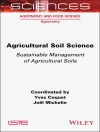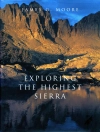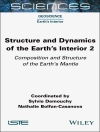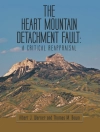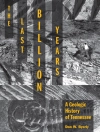The Phanerozoic Geology and Natural Resources of Egypt includes a series of chapters written by highly qualified group of researchers whose expertise is recognized and appreciated not only in Egypt, but also in the world over. The chapters span a wide range of geological subdisciplines including tectonics, paleogeography, stratigraphy, sedimentology, paleontology, groundwater, and energy resources, just to name a few. In this regard, the book provides the reader with ample knowledge about the different facets of the fascinating and always intriguing geology of Egypt since the Precambrian time. For a junior researcher or a geoscience student, the book is a comprehensive, multidisciplinary one-stop resource that they will continue to reference and rely on for years to come. For a more experienced scientist, the book summarizes the current state of knowledge, highlights the magnitude of complexity of the geology of Egypt and northeast Africa, and reveals potential areas where future research should be directed. The book is written in simple, easy to understand English language and contains very useful high-quality illustrations. Last but not least, The Phanerozoic Geology and Natural Resources of Egypt has been reviewed and edited by world class, highly ranked geoscientists from Egypt, Europe, and USA.
Зміст
Overall paleogeographic and geodynamic evolution.- Major Groundwater reservoirs in Egypt.- Western Desert Petroleum sources and reservoirs.- Nile Delta Petroleum sources and reservoirs.- Gulf of Suez and Red Sea Petroleum sources and reservoirs.- Off-shore Mediterranean discoveries.- Petroleum Source Rocks of Egypt – An Integrated Palynological and Organic Geochemical Approach: Spatio-temporal studies within the Phanerozoic of Egypt.- Carbonate platform deposits and hydrocarbon potentiality.- Hydrocarbon seepage during the Messinian salinity crisis.- Rare Earth Element in Egypt.- Phanerozoic Stratabound/Stratiform Ore Deposits of Egypt.
Про автора
Zakaria Hamimi is a structural geologist spent the majority of his academic careerer at Benha University (Egypt) along with some years at Sana’a University (Yemen, ) and King Abdulaziz University (Saudi Arabia). He has graduated (1984) from Assiut University (distinction with honor degree), and holds the M.Sc. (1988) from Zagazig University (Egypt) and the Ph.D. in Structural Geology and Tectonics (1992) from Cairo University. His research interests focus on Structural Geology, Microstructures and Tectonics. He has worked in many field-related sub-disciplines of Earth Sciences including geologic mapping, microstructural analysis, strain analysis, paleostress reconstruction, active tectonics, tectonic geomorphology, crustal deformation and image processing. He used all these fields to study key areas in the Arabian-Nubian Shield, and to decipher their deformation history. Zakaria Hamimi is the president, and one of the founding team, of the Arabian Geosciences Union since 2012.
He has received the medal of the Egyptian Geological Society of Egypt in 2015, and also the medal of the Arab Mining and Petroleum Association in 2016. He has co-published 50 research articles in national and international indexed and refereed journals and authored several books. In 2016, Zakaria Hamimi (1) joined the AJGS as Associate Editor responsible for evaluating submissions in the fields of Structural Geology, Microstructures and Tectonics, (2) selected as a Member of the Egyptian Universities Promotion Committee, the Supreme Council for Universities (SCU, Egypt), (3) nominated as a Secretary of the National Committee for Geological Sciences, Academy of Scientific Research and Technology, and (4) designated as the IUGS-Representative for Egypt. November 2017, he attended the Gondwana 16 International Conference held at Bangkok, Thailand, as the Representative of the National Committee for Geological Sciences, Academy of Scientific Research and Technology, Egypt. September 15, 2020, Zakaria Hamimi nominated as the President of the Egyptian National Committee for Geological Sciences, Academy of Scientific Research and Technology.
Hassan Khozayem is an associate professor at Aswan University, Egypt. He got his Ph D Degree from University of Lausanne, Switzerland in 2013 and was appointed as a lecturer in the Geology Department of Aswan University. He is invited as visitor professor for Princeton University and Lausanne University. In 2015 he awarded the state prize of encouragement from the Egyptian government (Egyptian Science and Technology Academy) in geosciences, and in 2017 he got the first class concession is provided by the Egyptian president. His work mainly on geochemistry and sedimentology of Paleogene sediments in Egypt, India, and Spain. His research interests focus on global climatic and paleo-environmental changes associated with warming events, with high-resolution bio-, and chemostratigraphy.
Currently, he is interested in the current global climatic changes and its impact on the environment using different geochemical proxies (stable isotope, mineralogy, and geochemistry). He is a member in several geo-societies as well as reviewer in several geoscience journals.
Thierry Adatte is Professor and head of the geochemistry and mineralogy sedimentary laboratory at the Institute of Earth Sciences of the University of Lausanne, Switzerland. He received his Ph.D. in Mineralogy and Sedimentary Geology from the University of Neuchâtel, Switzerland. 1989-1990: Postdoctoral fellow (FNS), Mexican Petroleum Institute (IMP). 1990-1993: Postdoctoral fellow (FNS), Universidad Autonoma de Nuevo Leon, Mexico and Neuchâtel University, Switzerland. 1993-2004: Maître assistant (“Assistant professor”), head of the Mineralogical and Geochemical Laboratory, Geological Institute, Neuchâtel University, Switzerland. 2004—2012: Associate Professor, “Chargé de cours et d’enseignement“ (paleontology, sedimentary-environmental mineralogy, general geology), Geological Institute, Neuchâtel University, Switzerland. 2008- 2018:
Researcher at the Institute des Sciences de la Terre (ISTE), Lausanne University, Head of the geochemistry sedimentary lab (XRD, CHN-Rock-Eval, Phosphorus). 2017-2018: Privat Docent at the Institute des Sciences de la Terre (ISTE), Lausanne University 2018-: Professor remplaçant at the Institute des Sciences de la Terre (ISTE), Lausanne University. His research interests are in the fields of global environmental change and extinction events, and his involvement in the deciphering of the events around the Cretaceous-Tertiary boundary event is documented by a series of publications (from 1997to 2019). He also explored the sedimentary documents of the PETM the Paleocene-Eocene boundary event (from 2000 to 2019). He is also involved in the study of oceanic anoxic event (from 2001 to 2018). His interests are in the use of geochemical and mineralogical proxies, such as stable carbon and oxygen isotopes, organic matter, clay minerals and recently also trace metal distributions as indicators of environmental and climatic change at the time of the extinction events. One of his main actual interest is the link between LIPS activity and mass extinction events, in particular during the KPg mass extinction. His team provided the most accurate dating of the Deccan activity and highlighted its crucial role in the KPg extinction. The use of mercury as a tracer of volcanic activity is also part his research. Acidification linked with these events is also one of his recent interest, more particularly for the KPg mass extinction. Since 1987, active participation (oral presentations and posters) of nearly 1112 meetings and symposia (GSA, AGU, EUG, IAS, SNOWBIRD, réunion spécialisées SGF) Convenor and co-convenor of sessions on Mass Extinctions, Volcanism, Impacts, and Catastrophic Environmental Changes at EGU Meetings since 2013 to 2018. Convenor and co-convenor of sessions on mass extinctions at GSA meetings in 2009, 2016 and 2017.
Fadi Henri Nader is currently a research project leader and geosciences expert at IFPEN Energy Resources (France) and Professor (by special appointment) of “Multiscale Fluid-Rock Interactions” in the Department of Earth Sciences at Utrecht University (The Netherlands).
Prof. NADER has more than 20 years of experience in fundamental and applied Earth sciences research. He is expert in sedimentology, characterisation and modelling of sedimentary basins and reservoirs/aquifers (clastics and carbonate rocks, fluid flow, diagenesis), integrated stratigraphy, seismic interpretation, structural geology and geochemistry.
In 2011/2012 he was appointed as the senior geology consultant at the directorate of petroleum (Ministry of Energy and Water, Rep. of Lebanon): building up the Ministry’s data room, assisting in the preparation for the bidding rounds for offshore gas exploration.
He was in charge of Business Development for Geosciences at IFP Energy nouvelles from 2017 to 2020. His duties included the preparation of technical-commercial proposals, management of specific partner/client portfolios, negotiation of contracts and elaboration of business models. In addition, strategy planning for the presence and visibility of IFPEN at international conferences and coaching a pool of technical advisors and project leaders. He graduated from the American University of Beirut (Lebanon) in Geology (BSc., MSc. -1994/2000), got his Ph D at the KU Leuven University (Belgium, 2003), and HDR (Habilitation de Direction de la Recherche) at the Paris-Sorbonne University France (2015), appointed professor at Utrecht University in 2019.
Prof. NADER supervised 30 MSc, 11 Ph D, and 3 postdoc students. He is co-author of more than 70 publications in peer reviewed international journals. He is very active in several international scientific and professional societies such as the Geological Society, London (GSL), the American Association of Petroleum Geologists (AAPG), the International Lithosphere Program (ILP – IUGS-IUGG).
Francisca Oboh-Ikuenobe is a professor and past interim chair in the Department of Geosciences and Geological and Petroleum Engineering at Missouri University of Science and technology. She obtained a Ph D degree in Geology from the University of Cambridge through a Commonwealth Scholarship, and MS and BS (First Class) degrees from the University of Ife (now Obafemi Awolowo University) in Ile-Ife, Nigeria. Dr. Oboh-Ikuenobe teaches courses about the evolution of the earth, stratigraphy, basic and advanced paleontology, and paleoclimatology. She uses her training in sedimentology to conduct research in palynology, a sub-discipline of paleontology that uses organic-walled microfossils such as pollen, spores, dinoflagellates and acritarchs, to unravel the history of the Earth.
Dr. Oboh-Ikuenobe is an elected Fellow of the American Association for the Advancement of Science (AAAS) and the Geological Society of America (GSA), and a 2019 Albert Nelson Marquis Lifetime Achievement inductee. She is an active member of several professional associations, serving as a director of the Association for Women Geoscientists Foundation, member of several GSA committees (including co-chairing the Diversity in the Geosciences Committee which introduced the On To The Future Scholarships), and as President of the AASP – The Palynological Society. A Fulbright Specialist Roster Candidate from 2010-2015, Dr. Oboh-Ikuenobe is an African Scientific Institute Fellow and member of the International Geoscience Programme (IGCP) Scientific Board (Global Change Group) of UNESCO/International Union of Geological Sciences. She is the recipient of more than 30 professional and civic awards and honors.
Mohamed Zobaa is an Assistant Professor and Graduate Program Head at the UT-Permian Basin, USA. He leads the sedimentaryorganic matter research group focusing primarily on the accumulation, distribution, and diagenesis of sedimentary organic matter in time and space and how they can be employed to characterize petroleum systems through the interpretation of depositional paleoenvironments, kerogen type, and organic thermal maturity. Dr. Zobaa’s research also includes the identification and delineation of key paleoclimatic and biostratigraphic events in the earth’s history that were responsible for the production and preservation of large organic matter quantities in some of the world’s hydrocarbon most producing sedimentary basins.
Mohamed Zobaa utilizes palynology and palynofacies analyses as primary proxies in his research but engages other disciplines and integrates a variety of tools to support and corroborate his research findings. These include, for example, Rock-Eval Pyrolysis, XRD, XRF, Vitrinite Reflectance, Gas Chromatography–Mass Spectrometry (GC-MS), and Organic Petrology. Dr. Zobaa has about 18 years of research experience studying the stratigraphy, palynology, and sedimentary organic matter content of many of the most important hydrocarbon generating sedimentary provinces in the world (e.g., Deep-water Gulf of Mexico, the Permian Basin in Texas, the San Juan Basin in New Mexico, the Williston Basin in North Dakota, and the north Western Desert of Egypt). Additionally, his research results and methodologies have been published and documented in top-tier, prestigious and widely circulated professional journals both in the United States and internationally. Some of these include the Geological Society of America Bulletin, Geosphere, Sedimentary Geology, and Marine and Petroleum Geology.
Dr Haytham El Atfy is associate professor at Mansoura University, Egypt, from which he has received a BSc in geology and an MSc in palynology. He has obtained his Ph D in geosciences (palynology and organic geochemistry) from Goethe University, Frankfurt, Germany, in 2014. Recently, he has received a Research Fellowship from the Alexander von Humboldt Foundation at the Institute of Geosciences, Eberhard Karls Universität Tübingen, Germany. His research interests span all aspects of palynology and its applications in hydrocarbon exploration, age dating and paleoenvironmental and paleoclimatic reconstructions, particularly of the Mesozoic and Cenozoic and, to a lesser extent, the Paleozoic.
He has more recently become involved in organic geochemistry, mainly vitrinite reflectance and organic petrography and TOC and Rock-Eval pyrolysis.
Dr El Atfy is a petroleum palynologist specializing in palynology and organic geochemistry with more than 15 years of academic and some industrial experience covering both conventional and unconventional resources. His expertise covers many basins in the MENA region and outside, for example; north Western Desert, Nile Delta and Gulf of Suez basins in Egypt; Sirte Basin in Libya; Rumaila, Zubair and Subbaoil fields in southern Iraq; Jordan; Germany, France, North Sea and Brazil. His scientific contribution is resulted in a number of more than 30 articles that have been mostly published in international, peer-reviewed journals that have a good scientific reputation. In addition, he has also strong skills in laboratory work including, palynology, palynofacies analyses, thermal maturation index, spore-pollen coloration index (SCI) and organic petrography. He is also a Visiting Researcher at the Senckenberg Research Institute, Germany and UNIVATES, Brazil.
Beyond his research interests, he is a trainer in academic skills, such as academic writing, writing for funding, proposal writing and quality assurance and accreditation since 2018. He is also a member of the Palynological Society (AASP), the Micropalaeontological Society (TMS), Arbeitskreis für Paläobotanik und Palynologie (APP) and some other local geoscience societies. Throughout his career Haytham has received several awards such as Egyptian State Incentive Award, Bernd Rendel-Prize from the German Science Foundation (DFG), TMS – Alan Higgins Award for Applied Micropalaeontology and many others.






